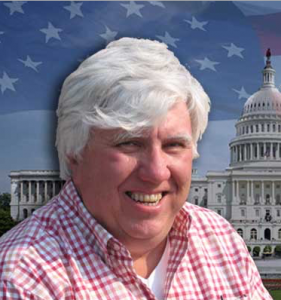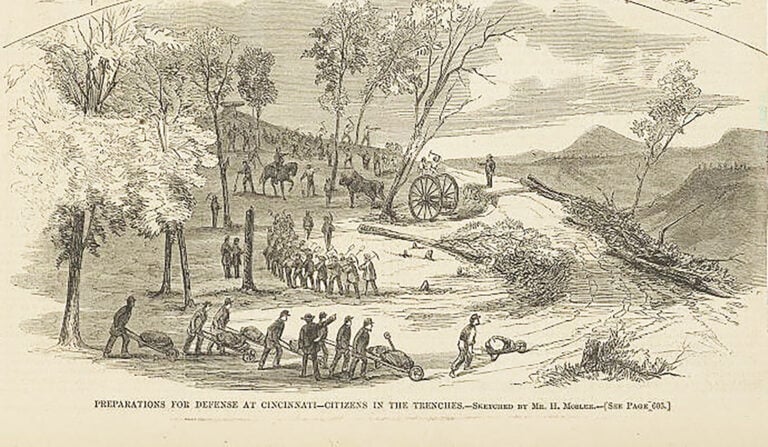Senate Republicans have made it official – they don’t believe in democracy.
The hints have been there for quite some time. Sen. Rand Paul, R-Bowling Green, confirmed as much a few days ago when he uttered the immortal words, “The idea of democracy and majority rule really is what goes against our history and what the country stands for.”
You read it right, the junior senator from the Commonwealth believes the idea of democracy goes against what the country stands for.
On Tuesday Paul and his GOP colleagues made his view official. All 50 Republican members of the upper chamber opposed a motion to open debate on the For the People Act, whose primary purpose is to make it easier for everyone to vote.
By refusing to even consider and discuss the measure, Republicans failed to help thwart what the Brennan Center for Justice has characterized as “one of the largest-scale attempts to disenfranchise Americans, especially voters of color, in at least half a century.”
America, the Center noted, retains its status as “an inclusive democracy, long promised but not yet delivered.”
 The NKyTribune’s Washington columnist Bill Straub served 11 years as the Frankfort Bureau chief for The Kentucky Post. He also is the former White House/political correspondent for Scripps Howard News Service. A member of the Kentucky Journalism Hall of Fame, he currently resides in Silver Spring, Maryland, and writes frequently about the federal government and politics. Email him at williamgstraub@gmail.com
The NKyTribune’s Washington columnist Bill Straub served 11 years as the Frankfort Bureau chief for The Kentucky Post. He also is the former White House/political correspondent for Scripps Howard News Service. A member of the Kentucky Journalism Hall of Fame, he currently resides in Silver Spring, Maryland, and writes frequently about the federal government and politics. Email him at williamgstraub@gmail.comGranted, the For the People Act carries one of those silly titles that lawmakers attach to their proposals thinking it will help generate support. But the bill’s content is far from silly. Much of it is essential in an ever-changing communications and technological environment.
The bill, among other things, provides a guaranteed period of early voting, mandatory availability of no-excuse mail voting and an enhanced automatic voter registration system, all aimed at increasing electoral involvement and making it easier for eligible voters to exercise their franchise.
It also contains some obviously debatable provisions – public financing for congressional campaigns, additional disclosure rules for campaign contributions and a reorganization of the federal election commission – that have nothing to do with making it easier to vote.
Enter Sen. Joe Manchin, D-WVa, a moderate who is endeavoring – without success – to return a degree of bipartisanship to a divided chamber. Manchin has offered an alternative that removes those provisions that don’t deal directly with increasing participation and adds a stipulation requiring some sort of voter identification at the polls, a move intended to attract Republican support.
Democrats expressed an intent to consider the Manchin alternative if the Senate could proceed to debate. But the Republicans, led by our old friend, Sen. Mitch McConnell, R-Louisville, were no more enamored with the new version than they were with the original.
So Manchin’s nod for bipartisanship was, as always, knocked down by recalcitrant Republicans.
The need for major voting reform has become acute since the 2020 presidential election, which saw President Joe Biden, the Democrats, defeat incumbent Republican President Donald Trump by some 7 million votes. The great orange menace who formerly lurked at 1600 Pennsylvania Ave. has been whining ever since that he was somehow cheated out of re-election, that he actually won a majority but the Democrats had somehow rigged the results.
Every thing he says is, of course, a lie.
Now in normal, that is to say sane, times, Trump would be laughed off the public stage for being the clown he most obviously is. But some Republicans, including many serving in the nation’s state legislatures, have embraced his lunacy and actually implemented laws making it more difficult for American citizens to exercise their right to vote.
According to the non-partisan Voting Rights Lab, 11 states have imposed new restrictions on voting by mail. Three states have added new barriers to registration and four states have new restrictions on the locations for drop-off ballots.
The Lab further found that, in all, 18 states have adopted more than 30 laws it describes as anti-voter. Those new restrictions affect about 36 million people, representing 15 percent of all eligible voters.
A lot of attention has been paid to the anti-democracy laws passed in Georgia and Texas. But they are far from alone. In Pennsylvania, for instance, a measure passed a House committee last week that would, among other things, restrict the use of drop boxes, reduce the time period for registration and requesting mail ballots and impose more stringent voter ID requirements. As in several other states including Georgia the Pennsylvania the bill would also shift authority over elections from local administrators to partisan officers and increase penalties for election violations.
Should the bill proceed to his desk, Gov. Tom Wolf, a Democrat, has indicated that he will issue a veto.
At first blush the entire situation might seem curious – why would one of the nation’s two major political parties want to paint itself as anti-democracy since, it’s fair to say, most people view the system as the nation’s cornerstone?
To some degree, the incessant wailing by the canned yam of Mar-a-Lago actually provides Republicans with some cover to pull off the sort of political fast one they’ve been itching to get away with for some time — suppress voting, particularly in the African-American community, where ballots usually accrue to the benefit of Democrats, while simultaneously serving the party’s base of older White males.
As noted by the Brennan Center, “Americans are more politically engaged than ever, and the newest eligible voters, dubbed Generation Z, are 48 percent nonwhite, making them the most diverse generation the nation has ever seen. These young Americans are coming of age in a time where power looks different: for the first time ever, the vice presidency is held by a woman, and a woman of color. For every generation after this, power has a new status quo.”
So it is to the political benefit of Republicans to suppress the vote. That’s obvious from the results of the 2020 election that, because of voting changes established to deal with the COVID-19 pandemic, not only resulted in the largest turn-out in the nation’s history but simultaneously resulted in the turning out of one Donald John Trump.
White folks, as a rule, vote in greater percentages than African-Americans and Latinos, who traditionally vote Democratic. With voting barriers broken down last November resulting in greater access to the ballot, Black citizens turned out with a vengeance, going so far as to capture a couple of Senate seats in Georgia, an accomplishment that at one time seemed impossible.
No matter how you slice it, the new laws are highly likely to suppress turnout.
It’s in the GOP’s interest to make voting more difficult rather than encourage greater participation.
McConnell, of course, argues that both the original and the Manchin voting rights bills represent “a transparently partisan plan to tilt every election in America permanently in [Democrats’] favor” and as “a recipe for undermining confidence in our elections.”
Typical McConnell. It’s difficult, nay impossible, to argue against greater participation. It’s not the Democrats seeking dominance by making it easier for people to vote, it’s the Republicans doing so by making it harder.


















Sen. Paul’s statement: “the idea of democracy and majority rule really is what goes against our history and what the country stands for.” What the facts of history tell us:
1.We are both a republic and a democracy- we are a democratic republic; on the democratic side, we have a history of struggles for non-property owners, minorities and women to achieve the right to vote.
2. We support the principle of majority rule/minority rights, though in the U.S. Senate today under current rules, minority rights far outweigh majority rule
It’s unfortunate that so many of our politicians in Congress, like Paul, lack a sense of our history and the ability to govern in a way that respects both majority and minority rights.